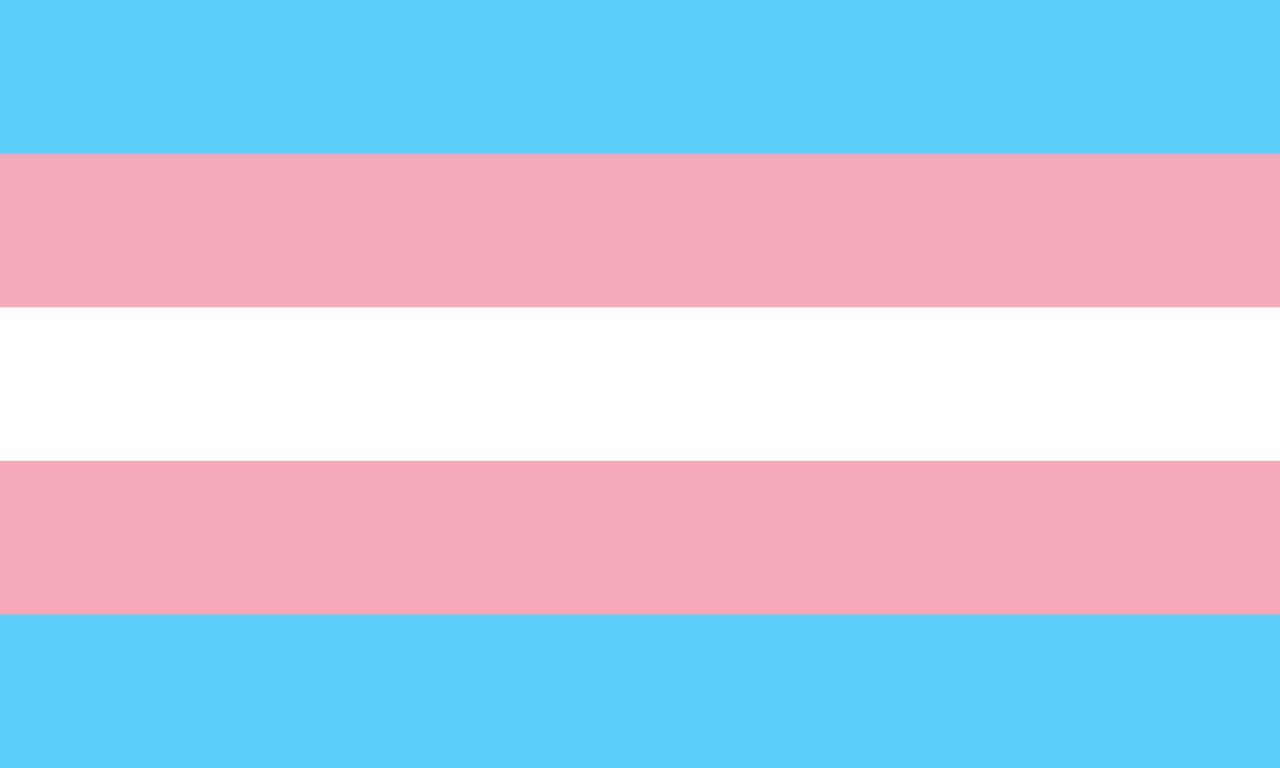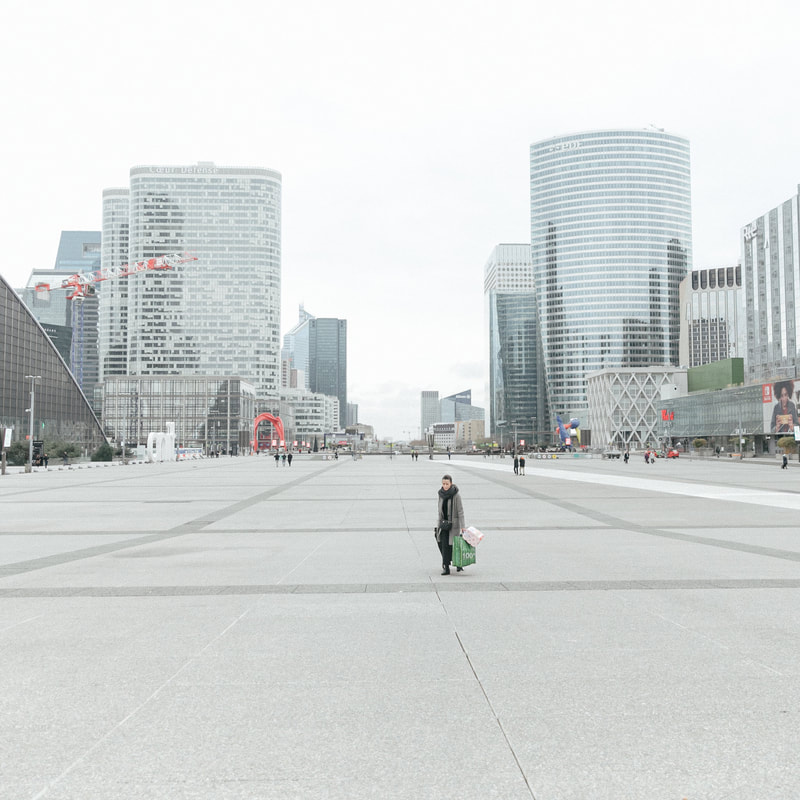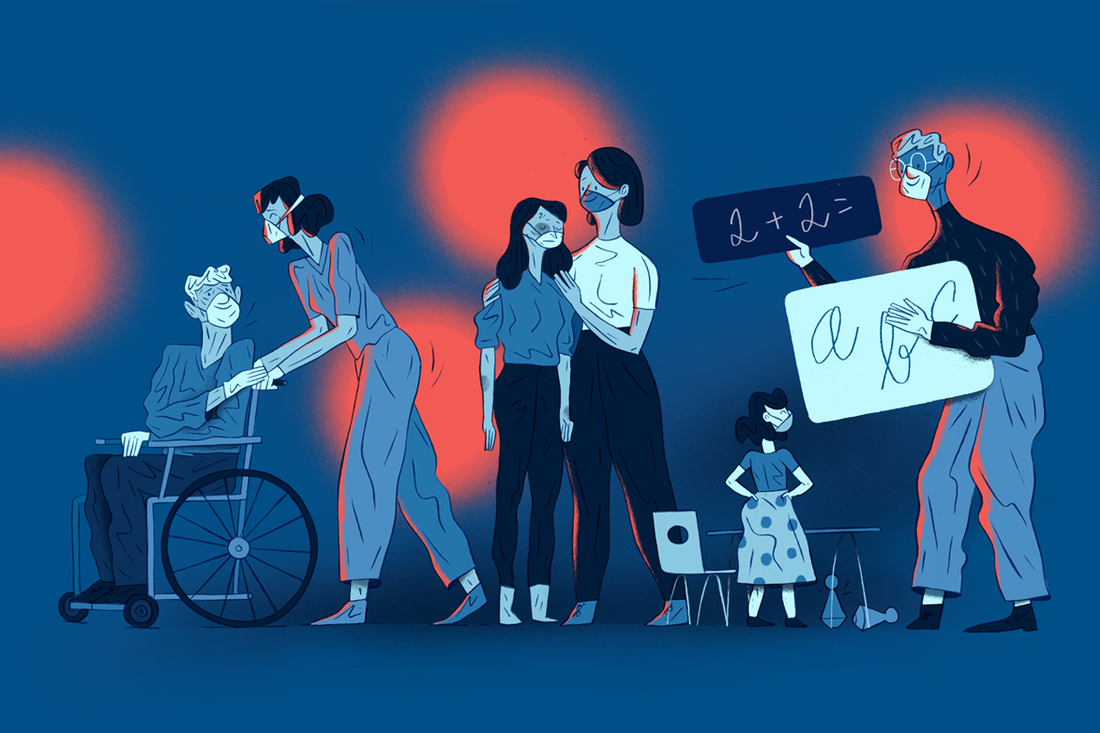For most, quarantine is difficult. We’re stuck inside, we’re bored, maybe we miss our friends, or can't visit our grandparents like we would usually do. There is stress about school, about graduation, about the grocery store running out of pizza pockets and having to learn how to feed ourselves in more than two steps.
However, for some, quarantine means so much more than that.
- Nat salop
For most, quarantine is difficult. We’re stuck inside, we’re bored, maybe we miss our friends, or can't visit our grandparents like we would usually do. There is stress about school, about graduation, about the grocery store running out of pizza pockets and having to learn how to feed ourselves in more than two steps.
However, for some, quarantine means so much more than that. For queer and/or disabled people, moving out of the house can be a way of gaining freedom, of finding people who understand and accept you, finding people who can support you in the way that you need. But now that schools are closing and people are losing their jobs, they can be forced to return to a more toxic environment, forced into perhaps a regression of self that can be incredibly damaging.
Especially for trans people, moving back in with your parents can be quite painful can be quite painful. Frequently family members can be slow to learn proper pronouns, and immersing oneself into a negative environment can be very stressful. Worst case, some trans people have had to return all the way back in the closet, as they weren't out to the people they now spend all day with. Others have stayed in their college dorms, alone, because they simply couldn't return home, such as Charlotte Wakefield, a sophomore at Yale; “her parents, Mormons who live in Utah, effectively kicked her out last year, when she came out as a transgender woman”.
However, for some, quarantine means so much more than that. For queer and/or disabled people, moving out of the house can be a way of gaining freedom, of finding people who understand and accept you, finding people who can support you in the way that you need. But now that schools are closing and people are losing their jobs, they can be forced to return to a more toxic environment, forced into perhaps a regression of self that can be incredibly damaging.
Especially for trans people, moving back in with your parents can be quite painful can be quite painful. Frequently family members can be slow to learn proper pronouns, and immersing oneself into a negative environment can be very stressful. Worst case, some trans people have had to return all the way back in the closet, as they weren't out to the people they now spend all day with. Others have stayed in their college dorms, alone, because they simply couldn't return home, such as Charlotte Wakefield, a sophomore at Yale; “her parents, Mormons who live in Utah, effectively kicked her out last year, when she came out as a transgender woman”.
Because of corona, all non-emergent have been cancelled in many hospitals, i.e. gender confirmation surgery. As stated in an April article, “In the UK, no surgeries are happening right now unless they are for an emergency or are cancer-related, so all transition-related surgeries are being cancelled. I know a lot of people who were due for appointments in the coming months and are very worried about the delays to their access to hormones and surgery. It’s daunting to think about the backlog these delays will create, making long wait times even longer.” For trans people who had scheduled and possibly even paid for gender confirmation surgery in the coming months, the setback that comes with waiting years for an opportunity like this and then not being able to receive it can be devastating for many.
One group of the LGBT community that is especially vulnerable is disabled queer individuals. In a recent article in them, an individual named Ellis was interviewed, a nonbinary trans disabled man from the UK. He has Ehlers Danlos Syndrome, which has caused him to be housebound for years, only recently gaining more mobility and freedom.
“It feels like a cosmic joke that this pandemic hit just as I was starting to go out and have new experiences,” said Ellis. “(I had so much planned for the next month or two!) Had it happened at any time in the previous 5 years, I’d barely have felt the effects of it, since I was stuck at home anyway. Now, it feels very painful to have had a brief taste of living life again, only to go back to being confined to the house.”
In the UK, disability advocates have been fighting against new regulations that score a patient’s “frailty” to determine whether they will receive life-saving care. If anyone is “completely dependent on personal care for whatever reason”, including disabled people, hospitals are encouraged to offer “end-of-life” treatment instead. That means that if an individual is dependent on care from others, they will not necessarily be given adequate life saving care, which can be very frightening for those individuals.
Additionally, the U.K.’s Coronavirus Act 2020 currently proposes the suspension of the Care Act 2014, a set of reforms which guaranteed disabled people the right to professional assistance from “carers”; this suspension will stop providing funding to disabled people in order to pay their carers’ salaries.
On top of that, not all careers are respectful to queer identity, and if a queer individual is unable to interact with anyone aside from a carer who doesn't maintain any personal connection to them, it can cause intense dysphoria and depression. According to Ellis, “[disabled people are] always deemed less worthy because we are not able to be productive in the way capitalism desires. LGBTQ+ disabled lives, especially, are often seen as disposable. I wish the media would acknowledge that disabled people exist and we face unique challenges during this crisis.”
In the time of quarantine, it is important to check up on your queer and disabled friends, to make sure they are getting the support they need, and to know that though it may be difficult now we will all get through this together.
Find more stories like Ellis' at: Queer Under Coronavirus
Additionally, the U.K.’s Coronavirus Act 2020 currently proposes the suspension of the Care Act 2014, a set of reforms which guaranteed disabled people the right to professional assistance from “carers”; this suspension will stop providing funding to disabled people in order to pay their carers’ salaries.
On top of that, not all careers are respectful to queer identity, and if a queer individual is unable to interact with anyone aside from a carer who doesn't maintain any personal connection to them, it can cause intense dysphoria and depression. According to Ellis, “[disabled people are] always deemed less worthy because we are not able to be productive in the way capitalism desires. LGBTQ+ disabled lives, especially, are often seen as disposable. I wish the media would acknowledge that disabled people exist and we face unique challenges during this crisis.”
In the time of quarantine, it is important to check up on your queer and disabled friends, to make sure they are getting the support they need, and to know that though it may be difficult now we will all get through this together.
Find more stories like Ellis' at: Queer Under Coronavirus




